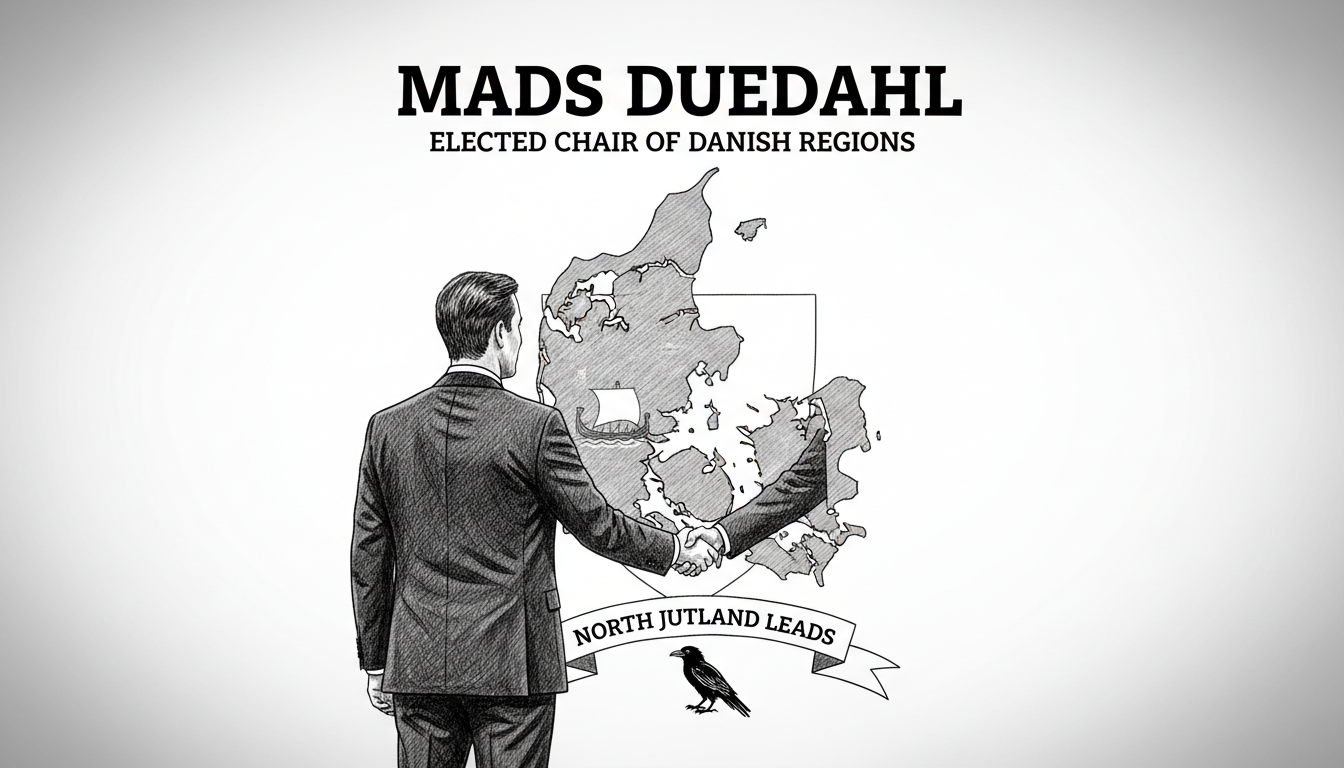Mads Duedahl has become the new chairperson of Danske Regioner, the national organization representing Denmark's five regional administrations. The Liberal Party politician from North Denmark Region takes over leadership from Anders Kühnau, who recently left his position as regional council chair in Central Denmark Region. This marks the first time a leader from North Denmark Region has held this influential position.
Duedahl's election follows his strong re-election as regional council chair in North Jutland during Tuesday's regional elections. He received 35,683 personal votes and helped the Liberal Party gain 1.8 percentage points in the region. The broad support across party lines demonstrates his political reach beyond traditional alliances.
A substantial majority within Danske Regioner's incoming board selected Duedahl for the leadership role. This coalition includes the Liberal Party, Conservative People's Party, Danish People's Party, Liberal Alliance, Denmark Democrats, and Social Liberal Party. Such cross-bloc support is unusual in Danish regional politics and suggests strategic consensus-building.
What does this leadership change mean for Danish healthcare and regional development? The chair of Danske Regioner plays a crucial role in negotiating with the national government about health budgets and regional infrastructure. Duedahl's background from North Jutland could shift focus toward addressing regional disparities between urban and rural areas.
Denmark's regional governments manage most public hospitals and regional transportation planning. They employ approximately 130,000 healthcare workers and control budgets totaling around 120 billion Danish kroner annually. The organization's chairperson represents regional interests in national health policy discussions and budget negotiations.
This leadership transition comes amid ongoing challenges in Denmark's healthcare system. Hospital waiting times and staff shortages remain pressing issues across regions. Duedahl's experience managing North Denmark Region's healthcare services during the COVID-19 pandemic likely contributed to his selection.
The political composition of regional councils often differs from national parliament dynamics. Regional elections frequently produce different power balances than national votes. Duedahl's ability to secure support from both right-leaning and centrist parties indicates his pragmatic approach to regional governance.
Regional development in Denmark faces particular challenges in the northern regions. Population decline in rural areas and the need for specialized healthcare access remain ongoing concerns. Duedahl's leadership could bring renewed attention to these issues during national policy discussions.
Danish regional elections occur every four years, with the most recent voting completed this week. The five regional councils manage substantial public resources and employ thousands of healthcare professionals across Denmark. Their collective organization, Danske Regioner, ensures coordinated advocacy toward the national government.
Duedahl's election represents both continuity and change in Danish regional leadership. His extensive experience in regional administration provides stability, while his North Jutland perspective introduces different regional priorities to national discussions. The coming months will show how this leadership transition affects healthcare policy and regional development funding.

